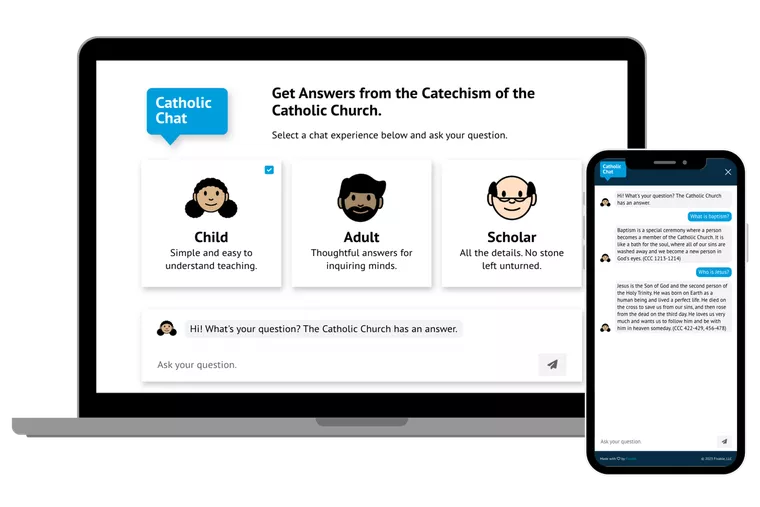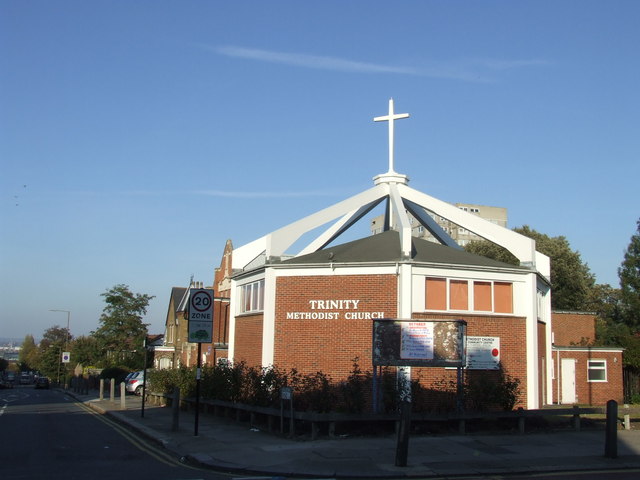A South Carolina-based tech company has used AI to create an interactive platform that allows users to engage with the Catholic Catechism in a natural conversational format.
Fivable, using the technology that powers ChatGPT, has trained the computer program solely in the Catechism of the Catholic Church to create Catholic.chat,
Founders Bryan Murdaugh and Dave Matney say Fivable’s mission is “to free people from doing too many computer things so they have more time to do really human things.”
“AI can be turned to good or bad ends. As with any technology, there is the temptation to make an idol of convenience and to chase after the promise of ‘working less’ while failing to ask why or for Whom we work at all.” said Dave Hazen, Fivable’s VP of communications.
“If we allow reliance on Artificial Intelligence to replace our desire for understanding, we will certainly be poorer. Thankfully, that’s not our only option.”
Catholic.chat invites the user to: “Get Answers from the Catechism of the Catholic Church.” Then the user is told to: “Select a chat experience below and ask your question.” After that, there are three levels of engagement to choose from:
“Child: Simple and easy to understand teaching”;
“Adult: Thoughtful answers for inquiring minds”;
“Scholar: All the details. No stone left unturned.”
Hazen went on to say that, although such software could never replace a teacher or a parent in transmitting the faith, Catholic.chat provides, as Bishop Frank Caggiano of Bridgeport, Connecticut, put it, “a place where the faithful can engage with a text [the Catechism] that can seem daunting or unfamiliar to many. Families can use it to start a conversation about any element of the faith. Teachers can use it to ensure what they teach is the truth. Students can use it to look up answers to questions about their faith. Even clergy can use it to infuse a little bit of the Catechism into their homilies at Sunday Mass.”
Fivable CEO Bryan Murdaugh views this making the Catechism accessible in a new way as an example of simply using “another tool in the software development toolbox. It’s one similar to others that have occurred throughout the history of computing, like the invention of the transistor, the dawn of personal computing, the internet and mobile computing. The pattern continues to accelerate with each new epoch. Just like any technology, the responsibility lies in the hands of the creators and practitioners to make sure it’s used ethically. It won’t always be. But, just like money, the more access is given to those who use a tool for good, the better.”
- Source: National Catholic Register



